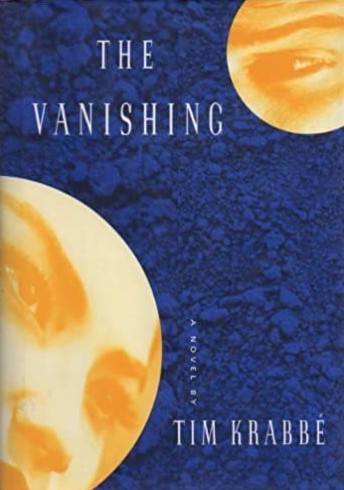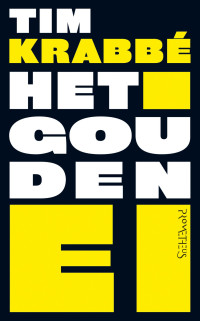 By TIM KRABBE (Random House; 1984/93)
By TIM KRABBE (Random House; 1984/93)
Another publication that deserves more attention than it has thus far received. It’s the first and only English translation of Tim Krabbe’s 1984 Dutch language masterwork HET GOUDEN EI (THE GOLDEN EGG), excellently rendered by Claire Nicola White as THE VANISHING—the title of 1991 Dutch film noir adapted from the novel and the 1993 Hollyweird remake. Of the two films the former is well worth seeing, but the novel is a standalone triumph that deserves to be considered on its own merits.
Of the two films the former is well worth seeing, but the novel is a standalone triumph that deserves to be considered on its own merits.
The story, by now, is famous enough (you’re probably familiar with most of its beats even if you haven’t seen either of the VANISHING films) that the element of surprise has long since been lost. Thankfully, then, this short (108 page) and concentrated tale has its share of pleasures that aren’t plot-related.
THE VANISHING 1988
Rex Hofman is a young Amsterdam-based writer vacationing in France with his fiancée Saskia. What little we learn about Saskia involves a childhood nightmare in which she finds herself trapped inside a golden egg, an image that recurs throughout the book, and proves alarmingly prophetic. Near the end of the first day of their trip Rex and Saskia stop off at a gas station, “no one’s final destination.” Saskia gets out to stock up at what we in the US would call a mini-mart while Rex waits in the car. Long story short: she doesn’t return, leading to a fruitless multi-year search. Nearly a decade later Rex has settled down and found a new female companion, but remains obsessed by Saskia’s inexplicable disappearance.
THE VANISHING 2019
 Enter Raymond Lemorne, who turns up around the book’s halfway point, and must be counted as one of the great fictional psychopaths. Raymond is a middle-aged chemistry teacher who also happens to be a remorseless killer. After committing several random murders the man (as an extended flashback informs us) takes to stalking women he intends to chloroform and kill. Raymond’s quest entails a lot of trial and error, as his initial attempts at nabbing would-be victims, involving a fake cast and a trailer to be hooked onto his car, are unsuccessful. Then he runs into Saskia at the gas station and finally manages to carry through with his evil plans, although we, like Rex, don’t learn what Raymond does with Saskia until the final pages.
Enter Raymond Lemorne, who turns up around the book’s halfway point, and must be counted as one of the great fictional psychopaths. Raymond is a middle-aged chemistry teacher who also happens to be a remorseless killer. After committing several random murders the man (as an extended flashback informs us) takes to stalking women he intends to chloroform and kill. Raymond’s quest entails a lot of trial and error, as his initial attempts at nabbing would-be victims, involving a fake cast and a trailer to be hooked onto his car, are unsuccessful. Then he runs into Saskia at the gas station and finally manages to carry through with his evil plans, although we, like Rex, don’t learn what Raymond does with Saskia until the final pages.
By that point Raymond and Rex have gotten together, with the former’s psychosis and the latter’s curiosity combining in a denouement that’s profoundly bleak yet curiously logical. Given the unnervingly detached and unemotional (i.e. European) manner in which the story is related, the calmly delineated conclusion, which neatly ties together Saskia’s golden egg dream, Rex’s obsessive nature and Raymond’s scientific bent, has a horrific symmetry that’s disturbing yet entirely appropriate.
“Nothing was ever heard of either of them again—they seemed to have vanished from the face of the Earth.”
What ultimately occurs I won’t give away, although I will provide a clue, in the form of the book’s final sentence, which is simply too perfect in its sad yet deeply ironic aura not to include: “Nothing was ever heard of either of them again—they seemed to have vanished from the face of the Earth.”
